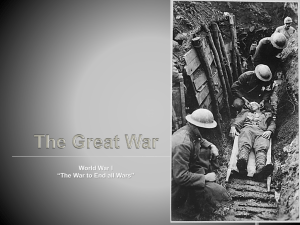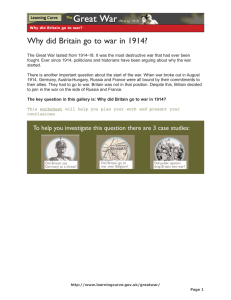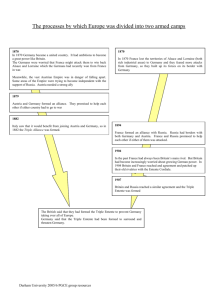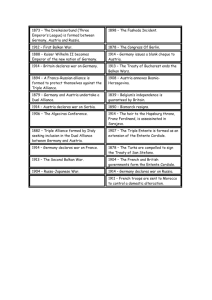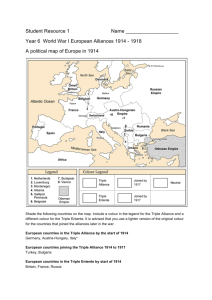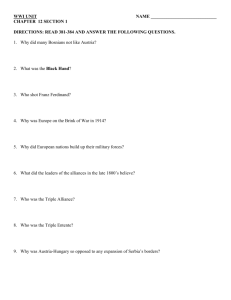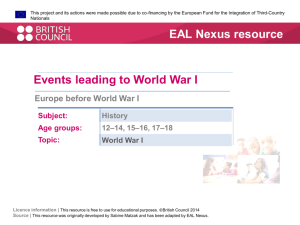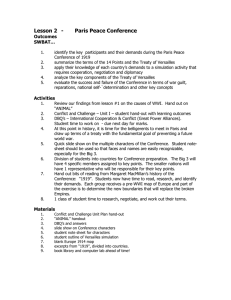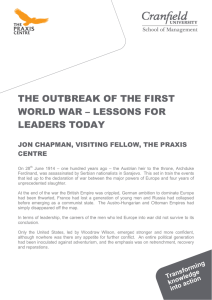GREAT POWER ALLIANCES – DBQ ___ 6
advertisement
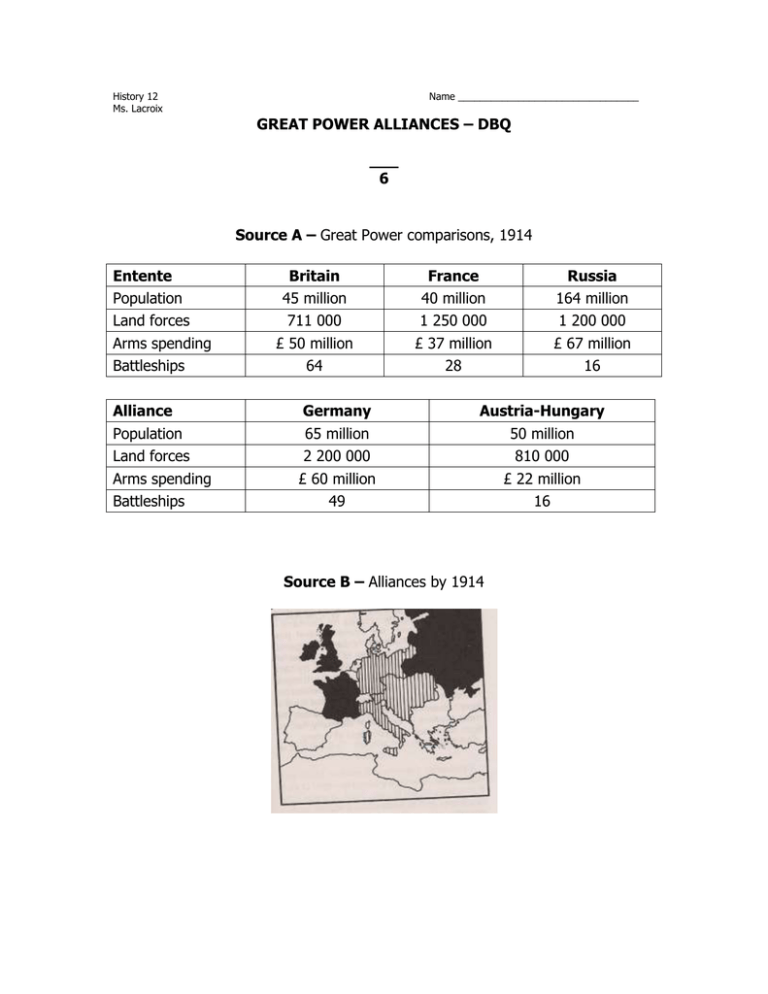
History 12 Ms. Lacroix Name _________________________________ GREAT POWER ALLIANCES – DBQ ___ 6 Source A – Great Power comparisons, 1914 Entente Population Land forces Arms spending Battleships Alliance Population Land forces Arms spending Battleships Britain 45 million 711 000 £ 50 million 64 Germany 65 million 2 200 000 £ 60 million 49 France 40 million 1 250 000 £ 37 million 28 Russia 164 million 1 200 000 £ 67 million 16 Austria-Hungary 50 million 810 000 £ 22 million 16 Source B – Alliances by 1914 Source C - adapted from a secondary text: Comments on the European international scene The international scene was changed by the eclipse of Russia, the emergence of Germany and the Entente. Grey (British Foreign Secretary) was determined to stand by France. He was impatient to see Russia re-established in European politics. He looked forward to an agreement with Russia that would extend the Entente with France. He wanted friendly relations with Germany provided Germany accepted Britain’s friendly relations with France and Russia. Source D - British Colonial Secretary, 1912 The assumption that we are in fact members of a new Triple Alliance, opposed to the old (i.e. the Triple Alliance of Germany, Austria, and Italy) is so mischievous and dangerous that I think some early opportunity should be taken of making it clear to both France and Russia that such an assumption is wholly opposed to our policy and intentions. Source E- An American observer, 1914: The situation is extraordinary. It is militarism run stark mad. Unless someone can bring about a different understanding there is some day to be an awful catastrophe. No one in Europe can do it. There is too much hatred, too many jealousies. When England consents, France and Russia will close in on Germany and Austria. Knowledge/Understanding: 1. 2. 3. What made Europe an increasingly dangerous place in the years before 1914? To what extent did the results of military and diplomatic developments before 1914 give a seeming advantage to the Entente Powers? How important was Britain’s role in Europe in the years before 1914? Evidence 1. 2. 3. How reliable is Source D as evidence of British Government attitudes towards Europe? In what ways are the ideas put forward in Sources D and E similar or different? Explain. Does Source D or Source E give the more convincing explanation of the European situation before 1914? Explain.
